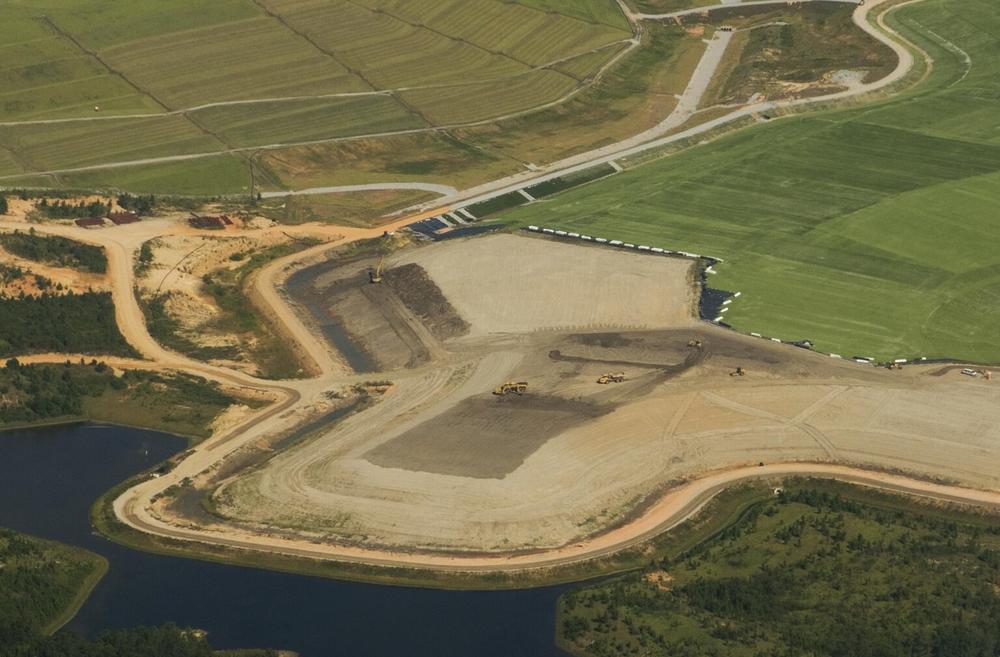
Caption
An under construction cap to a coal ash pond at Georgia Power’s Plant Yates on Sept. 7, 2023. Plant Yates is one of five sites where Georgia Power intends to cap ponds where coal ash sits partially submerged in groundwater.
Credit: Grant Blankenship / GPB News


